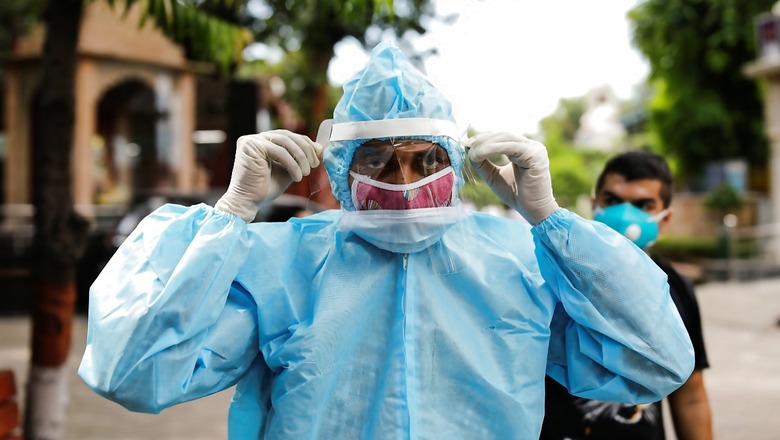
views
The novel Coronavirus has adversely affected almost every country across the world. While a few of them are in recovery mode, some have just begun approaching the peak. Community transmission has been the nucleous of clinical importance while managing the pandemic and formulating an effective plan to battle Covid-19 disease.
The World Health Organization (WHO) defined it as outbreaks with the inability to relate confirmed cases through chains of transmission for a large number of cases, or by increasing positive tests through sentinel samples routine systematic testing of respiratory samples from established laboratories. However, WHO’s definition of community transmission is vague and does not provide any definitive number or percentage of cases with untraceable contact history.
There have been controversies and arguments between Government authorities, health organizations and experts across India over entering into the stage of community transmission when the total number of COVID-19 cases crossed 3 million on August 22.
According to a study conducted by Indian Council of Medical Research (ICMR) among patients with Severe Acute Respiratory Illness (SARI) in 52 districts of 20 states/union territories of India, reported that around 40% patients with COVID-19 reported no contact with any confirmed cases or international travel history.
Yet, citing the initial findings of sero-survey, ICMR denied the possibility of community transmission due to lower prevalence of coronavirus infection and less than 1% of participants found infected with COVID-19 in part 1 of sero-survey. The survey included blood samples of 26,400 participants from 83 districts, but with a population of over 1.3 billion, this survey represents less than 1% of the Indian population.
The Ministry of Health & Family Welfare reiterated that there are clusters of cases and pockets of localized transmission but they denied any community transmission, citing that community transmission is not defined by the WHO on July 22.
While once again, experts in June suggested that there is community transmission (stage 3), the ICMR reiterated that there was no such transmission in the country yet based on a serosurvey report.
The survey was conducted across 83 districts in 21 states, testing 26,400 people in 28,595 households, only 0.73% of the population showed evidence of past exposure to new coronavirus and a significant portion of the population was still susceptible to Covid-19 with the fatality rate very low as 0.08%.
Despite the rapid spike in the number of cases and deaths due to COVID-19, Authorities are still denying community transmission.
The joint task force formed by experts from Indian Public Health Association (IPHA), Indian Association of Preventive and Social Medicine (IAPSM) and Indian Association of Epidemiologists (IAE) communicated to Government of India about COVID-19 stated that community transmission is well established as numbers of cases are increasing even after the imposition of lockdown for more than past 7 weeks. The government is relying on clinicians and general administrative bureaucrats who do not have proper training and skill rather than on expert epidemiologists and public health experts, they added.
WHO in its situation report on 9 April, put India in the community transmission stage when cases were only around 6,000, while on 20 June situation report categorized COVID-19 in India as clusters of cases when number of cases reported were 395,048.
This change in statements by authorities at the national and international level was questioned by health care experts but the Government did not budge from its stand- that there is no community transmission in India.
The current situation has raised several concerns over planning and utilizing the existing resources of the country to fight coronavirus when disease status in India is still being debated. Although the Government is clarifying the facts but more questions are being added every day which authorities failed to answer.
Dr Abhishek Shankar is Assistant Professor in Radiation Oncology at Lady Hardinge Medical College & SSK Hospital, Delhi. Dr Deepak Saini is Project Officer at Cancer Control and Prevention Division of Indian Society of Clinical Oncology, Delhi.
















Comments
0 comment